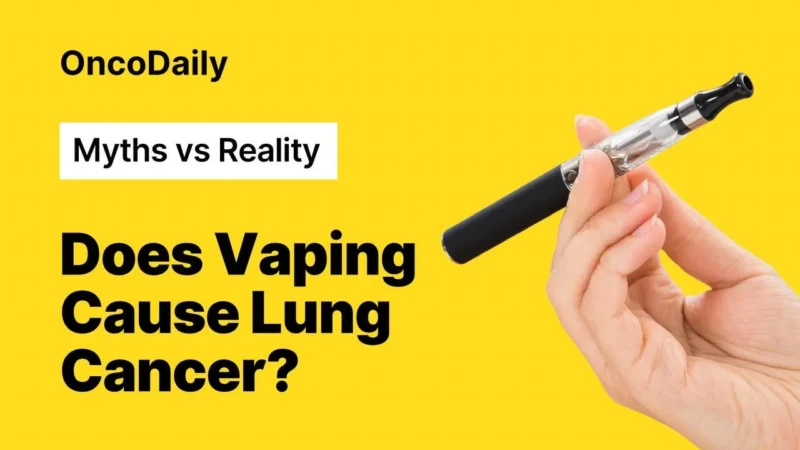Once seen as a safer alternative, e-cigarettes have become a gateway to addiction – especially among youth. In Malaysia, the rise of vaping among teenagers is accelerating at an alarming rate. What was once framed as harm reduction has evolved into a growing public health crisis within the country. As usage rises, so do the risks – making urgent, decisive action essential.
Dr. Rabindra Abeyasinghe, WHO Representative to Malaysia, Brunei Darussalam and Singapore, and Associate Professor Dr. Murallitharan Munisamy, Chairman of the Malaysian Council for Tobacco Control (MCTC), emphasize the importance of decisive action to curb this growing threat:
“By: Dr Rabindra Abeyasinghe, WHO Representative to Malaysia, Brunei Darussalam and Singapore and Associate Professor Dr Murallitharan Munisamy, Chairman, Malaysian Council for Tobacco Control (MCTC). In schools, at homes, across Malaysia, a growing crisis is unfolding. Teenagers and young people are getting hooked on sleek, colourful devices – drawn in by sweet flavours and playful packaging, unaware that each puff delivers nicotine, toxic chemicals, and increasingly, illicit drugs. Initially marketed as a “safer alternative” to conventional cigarettes, e-cigarettes or vapes have rapidly evolved into a new gateway to addiction, not limited to tobacco.
In just five years, e-cigarette use in Malaysia among teenagers has increased by over 50%. Among adults, e-cigarette use increased by sevenfold (Global Adult Tobacco Survey Malaysia 2023) over the past decade, with younger age groups showing the highest current use.
To address this growing public health crisis, Malaysia in 2024 strengthened its regulations on e-cigarettes, setting age restrictions for sale, aligning the packaging and labelling requirements and banning advertising, promotion and sponsorship in line with tobacco control measures. This was part of a broader tobacco control law reform to protect the people of Malaysia. The steadfast commitment of Malaysian health leaders that led to the adoption of the new laws was recently recognized by the World Health Organization (WHO) through the World No Tobacco Day Award 2025.
But tobacco control must stay vigilant and uncompromising as long as the industry continues to exploit loopholes and gaps to sell its deadly products. E-cigarettes are harmful and addictive – they contain toxic substances which pose health risks to both users and non-users who are exposed to secondhand emissions. These devices have also caused injuries, such as burns due to battery explosions. In Malaysia, there are increasing number of cases of poisoning related to e-cigarettes.
While earlier cases involved unintentional poisoning in children under five, the recent rise in poisoning among adolescents who use e-cigarettes is even more alarming. Even more concerning, in Malaysia, there has been increasing cases of e-cigarettes laced with illicit substances. Taking advantage of regulatory gaps and enforcement challenges, syndicates are using e-cigarettes as a vehicle for illicit substances. At the same time, the industry continues to fuel demand by designing products that appeal to youth and circumvent regulations.
These products are increasingly widespread, and their reach is expanding rapidly, particularly among young people, and the effects are beginning to spill over into neighboring countries as well. The evidence is clear and is deeply concerning, Malaysia must act decisively to stop this crisis. There is growing momentum in adopting comprehensive bans on e-cigarettes. In December 2024, Viet Nam’s National Assembly adopted a comprehensive ban on ecigarettes.
In May 2025, Papua New Guinea issued a ministerial order to ban e-cigarettes. Globally, the number of countries banning the sale of e-cigarettes reached over 40 countries, including other neighbouring ASEAN countries like Brunei Darussalam, Cambodia, Lao People’s Democratic Republic, Singapore, and Thailand to protect young people and safeguard public health. The sheer diversity of e-cigarettes with thousands of flavours and varying device types pose serious regulatory challenges and enforcement burdens. Of course, enforcing a comprehensive ban also requires sufficient capacity.
But why continue investing in complex enforcement systems to manage a harmful and fastevolving product which is increasingly linked to illicit activity, when a comprehensive ban could offer a more straightforward path to protecting public health and future generations?
Malaysia stands at a critical juncture. Some Malaysian States have taken a stricter stance against e-cigarettes by banning or not issuing licenses to sell them. Healthcare professionals, academia, political leaders and civil society are increasingly calling for a unified national level ban. We have seen how inconsistent measures and regulations have failed. We have witnessed the industry’s ability to relentlessly exploit and circumvent regulatory loopholes and target our most vulnerable population – our children. We cannot afford to wait. Every delay means more children exposed, more families affected, more lives at risk. The time to act is not tomorrow. It is today.”
You can read more about vaping in OncoDaily’s article about “Does Vaping Cause Lung Cancer? Myths and Facts.”



